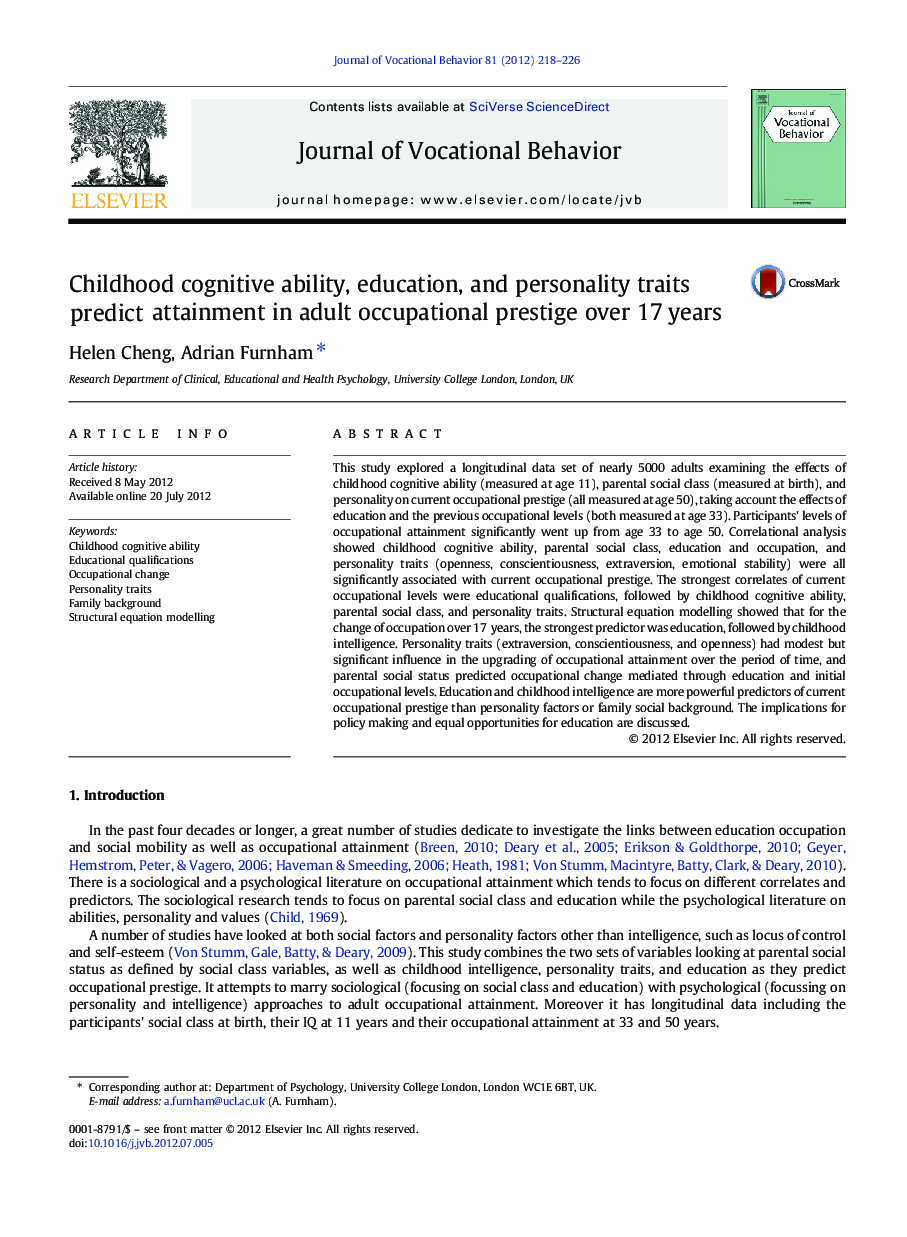| Article ID | Journal | Published Year | Pages | File Type |
|---|---|---|---|---|
| 886907 | Journal of Vocational Behavior | 2012 | 9 Pages |
This study explored a longitudinal data set of nearly 5000 adults examining the effects of childhood cognitive ability (measured at age 11), parental social class (measured at birth), and personality on current occupational prestige (all measured at age 50), taking account the effects of education and the previous occupational levels (both measured at age 33). Participants' levels of occupational attainment significantly went up from age 33 to age 50. Correlational analysis showed childhood cognitive ability, parental social class, education and occupation, and personality traits (openness, conscientiousness, extraversion, emotional stability) were all significantly associated with current occupational prestige. The strongest correlates of current occupational levels were educational qualifications, followed by childhood cognitive ability, parental social class, and personality traits. Structural equation modelling showed that for the change of occupation over 17 years, the strongest predictor was education, followed by childhood intelligence. Personality traits (extraversion, conscientiousness, and openness) had modest but significant influence in the upgrading of occupational attainment over the period of time, and parental social status predicted occupational change mediated through education and initial occupational levels. Education and childhood intelligence are more powerful predictors of current occupational prestige than personality factors or family social background. The implications for policy making and equal opportunities for education are discussed.
► This study was based on a unique longitudinal data base. ► It showed intelligence at birth as well as parental social class predicts occupational attainment. ► Personality factors play a small but important role.
